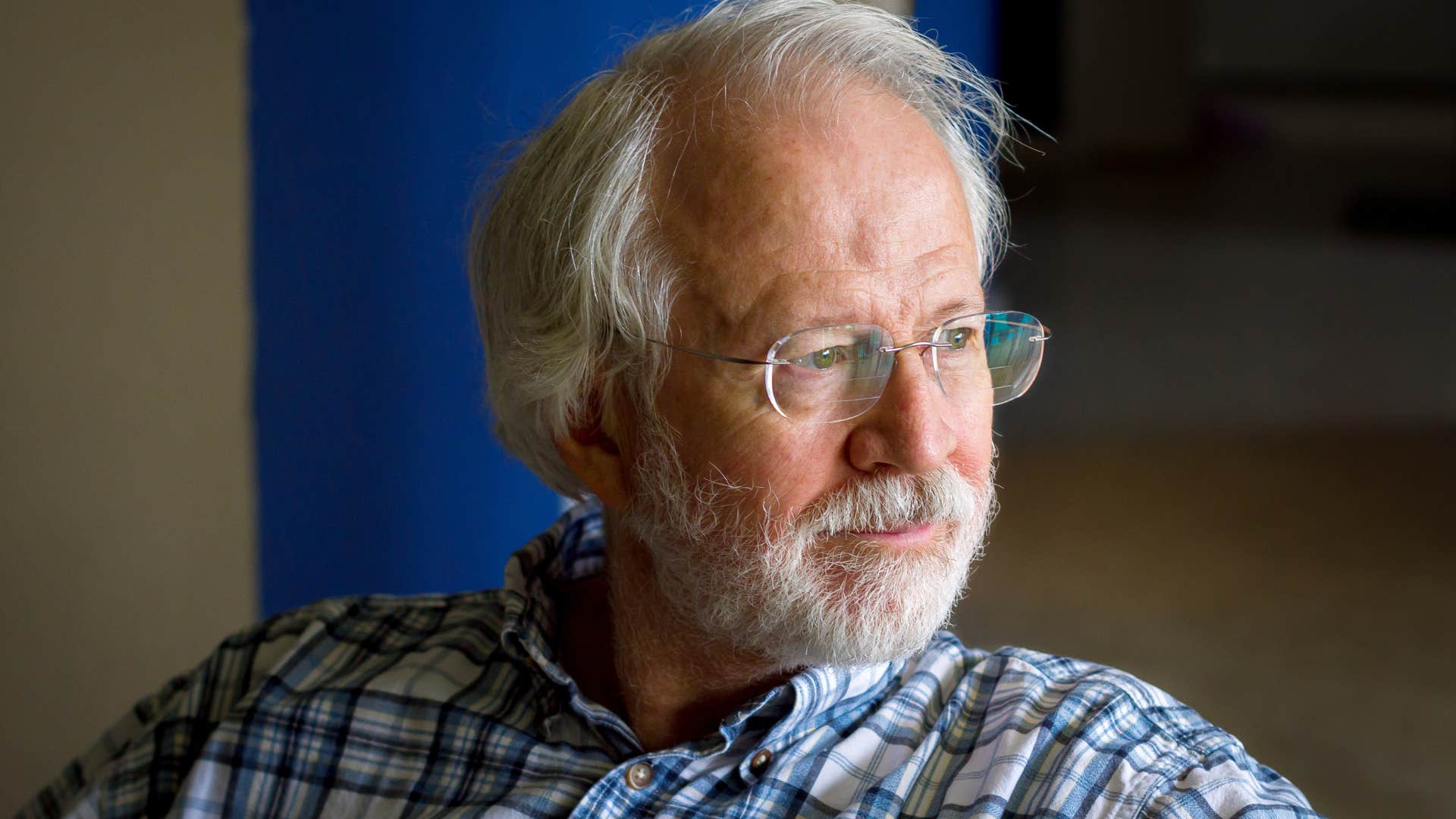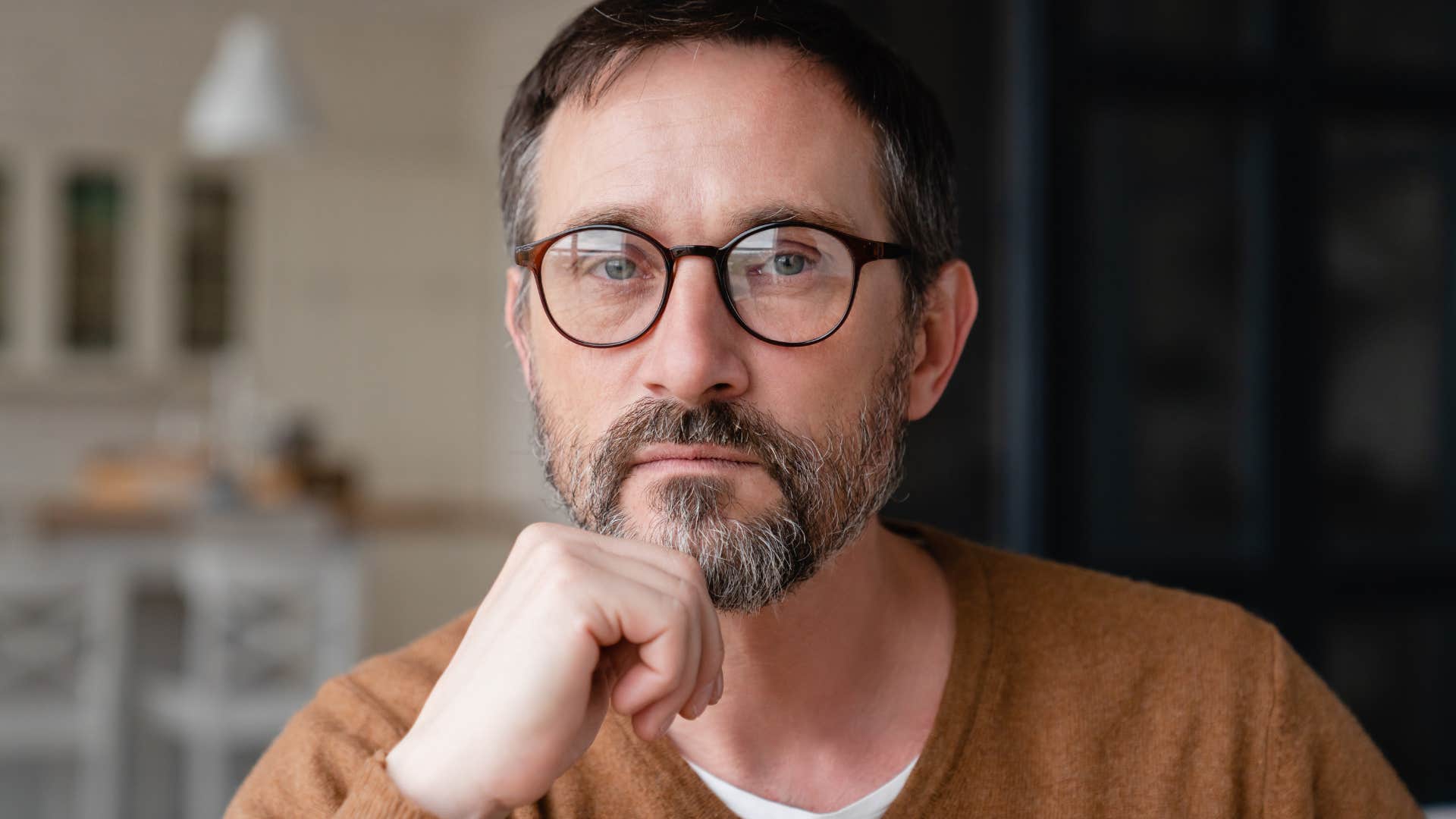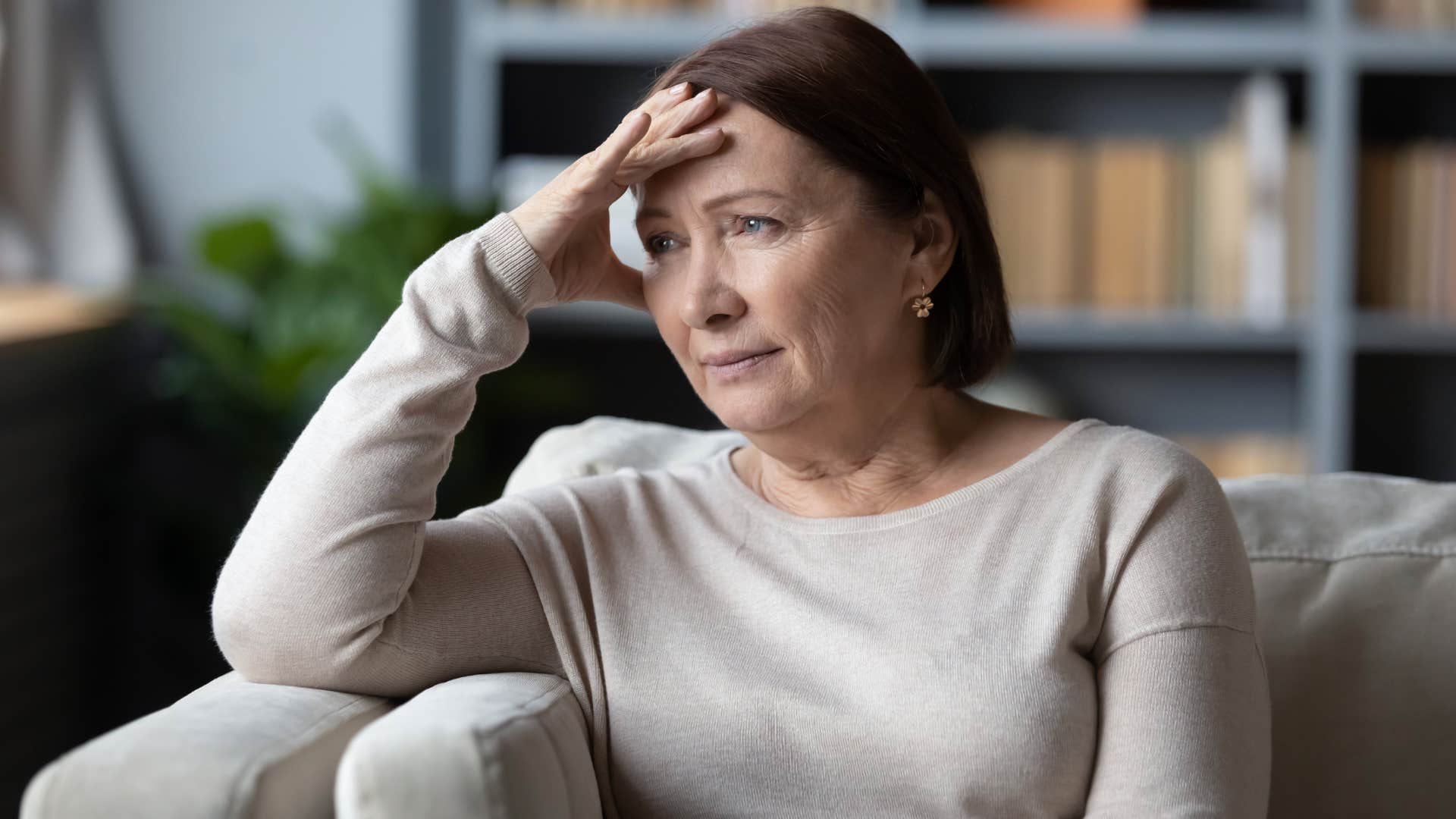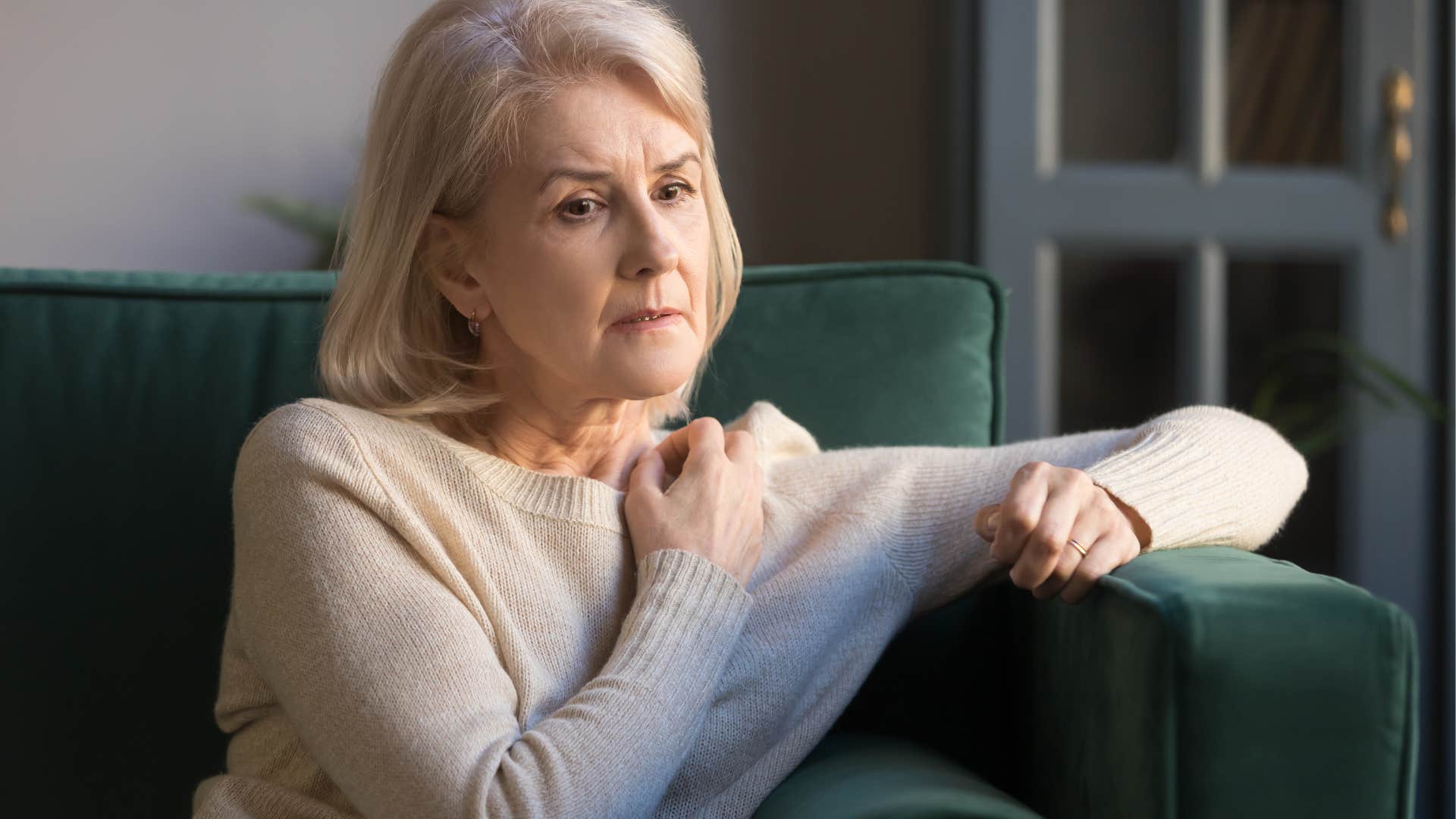10 Traits Of Parents Whose Adult Kids Often Hate Them Once They Grow Up
It's not only traumatic, but incredibly taxing to heal from a harmful family dynamic in adulthood.
 Perfect Wave | Shutterstock
Perfect Wave | Shutterstock According to data from a 2020 Cornell study, nearly 27% of adults reported that they'd gone "no contact" with a family member recently, with 10% admitting it was a parent — a nearly 7% increase from research conducted a decade prior.
As this complex discussion of estrangement and childhood trauma continues to grow more mainstream, this trend will likely continue, as adult children set healthy boundaries and acknowledge the traumas they've been burdened with throughout their lives.
While this decision is autonomous to adult children, in an empowering way, there are some specific traits of parents whose adult kids often hate them once they grow up that influence the decision making of this impactful relationship shift.
Here are 10 traits of parents whose adult kids often hate them once they grow up
1. They're closed-minded
 In The Light Photography | Shutterstock.com
In The Light Photography | Shutterstock.com
Unable to accept changing societal norms, specifically the ones that prompt difficult conversations in toxic family dynamics, many toxic parents have lived in a constant defensive position as a means of self-preservation. Instead of channeling vulnerability or working on their emotional intelligence, they close themselves off to their kids, letting their needs go unaddressed.
Adult children don't make the decision to cut off contact or stop communicating with their parents lightly; in fact, it's almost always informed by decades of trauma, experiences, and resentment sparked by unmet needs and toxicity. When their parents are closed off to discussing those things, or at least supporting their kids as they work through them, they sacrifice the entire relationship.
2. They struggle with open communication
 Fizkes | Shutterstock.com
Fizkes | Shutterstock.com
Open communication is the hallmark of any healthy relationship, whether it's with a parent or a romantic partner. It not only helps to resolve conflicts and express empathy toward another person, it provides healthy avenues to resolve and heal from childhood trauma, especially for adult children still struggling to move forward.
Like a study from the American Journal of Speech-Language Pathology explains, children with childhood trauma who have experienced mistreatment from their parents often struggle to develop healthy communication styles, having constantly compensated for their parents early in life.
Burdened with protecting their parents' emotional fragility growing up, adult children oftentimes feel obligated to do the same in adulthood, withholding their concerns and emotions to "protect the peace" of their relationship. When that becomes too heavy of a burden to carry, especially amid the stressors of adult life, those adult children become resentful.
3. They don't respect boundaries
 Fizkes | Shutterstock.com
Fizkes | Shutterstock.com
Like the book "Boundaries: Where You End and I Begin," written by Anne Catherine, suggests, there's no way to avoid the discomfort setting boundaries brings, especially in a toxic family dynamic or with an unhealthy family member. However, healthy parents respect their adult children's needs, whether they're physical or emotional, while toxic parents tend to debate them.
At a foundational level, one of the main traits of parents whose adult kids often hate them once they grow up is respect — they didn't feel heard, understood, or believed growing up, and that disrespect never faded into adulthood. Healthy boundaries are a way for everyone to feel more comfortable over time, and if a parent refuses to respect them, they're only invalidating what their children need.
4. They're blame-shifters
 Fizkes | Shutterstock.com
Fizkes | Shutterstock.com
Failing to take accountability for their actions and shifting blame are innately narcissistic traits of many toxic parents, and according to a 2014 Smith College study, it often evokes feelings of unworthiness and deep-rooted insecurity in their children into adulthood. This tendency often emotionally drains children when they're together, causing a separation that often fuels "no contact" orders.
Disillusioned by their parents' emotional invalidation and subsequently drained from every interaction they share, adult children tend to grow resentful of their parents into adulthood, exhausted with having to beg for positive attention or genuine support.
5. They're overly competitive
 Chokniti Studio | Shutterstock.com
Chokniti Studio | Shutterstock.com
Many overly critical parents operate from a place of insecurity, subconsciously demeaning or sabotaging their adult childrens' achievements as a means to self-soothe their own difficult emotions. Embarrassed by their own personal success or struggling with narcissistic tendencies that burden them with needing to feel superior, they contribute to a toxic competitive environment for their children.
Parental jealousy isn't uncommon; in fact, psychiatrists like Barton Goldsmith argue that inherent feelings of envy or embarrassment can manifest in a variety of ways that many children have experienced at least once in their lives.
Of course, children burdened with this guilt and shame from their parents often struggle with their self-esteem and personal agency, affecting their ability to seek out healthy relationships and lead with confidence in adulthood.
6. They resort to frustration instead of empathy
 Inside Creative House | Shutterstock.com
Inside Creative House | Shutterstock.com
According to psychologist Bernard Golden, emotional intelligence acts as "a buffer" against destructive anger, especially in conflicts and disagreements within close relationships. Instead of opening themselves up to insightful conversations about difficult emotions and helping to support their adult children, many toxic parents resort to frustration, unable to verbalize their own concerns.
This belittling of their adult children's sensitivity and emotional vulnerability closes the door to open communication, a necessary practice for maintaining a healthy relationship. Isolating both parties and sparking the all-too-common experience of resentment, these familial relationships continue to cycle through toxic interactions until one person enforces necessary boundaries.
7. They feel entitled to their adult child's space, energy, and time
 Fizkes | Shutterstock.com
Fizkes | Shutterstock.com
Considering societal expectations for adult children to become caregivers for adults later in life, both physically and emotionally, according to the book "Family Ties and Aging," this burden of support can be complex to navigate in tumultuous family dynamics.
While a toxic parent may feel a sense of entitlement to this care — overstepping boundaries of space, technologically and otherwise — from their adult children, this constant reliance can channel resentment. If an adult child didn't get their needs met growing up, they're likely less motivated to support their parents in adulthood, especially if they're in the process of unlearning toxic tendencies like people-pleasing.
8. They're unapologetic
 Fizkes | Shutterstock.com
Fizkes | Shutterstock.com
Many adult children and parents struggle to find common ground later in life, especially when one or both is burdened with unresolved childhood trauma, as they often have different recollections of the past. Instead of acknowledging their adult child's emotions about an experience, even if they remember it differently, toxic parents resort to defensiveness.
Empathy can go a long way, especially in a family dynamic that's constantly evolving over time. Healthy parents make space for open discussions, empathetic responses to their children's emotions, and boundaries that safeguard everyone's emotional well-being.
9. They're unappreciative or inconsiderate
 Fizkes | Shutterstock.com
Fizkes | Shutterstock.com
Many adult children who have tumultuous relationships with their parents grow up feeling hyper-sensitive to their emotions, often developing "people-pleasing" tendencies as a means to cope and "protect the peace," like a study from the European Journal of Trauma & Dissociation argues.
Into adulthood, those coping mechanisms and relational behaviors don't simply vanish, they continue to inform and influence not only the health of their other social connections, but the well-being of their family dynamic.
When parents are unappreciative or unapologetic to the emotional taxation they spark in their adult children, especially at their own expense, a toxic cycle of resentment starts where adult children's feelings aren't acknowledged and their needs are consistently not met.
10. They're insecure
 Fizkes | Shutterstock.com
Fizkes | Shutterstock.com
Many older people, including parents with adult children who are out of the house, struggle with a kind of insecurity that influences their heightened rates of loneliness, social connections, and societal ageism, according to a study from the Scandinavian Journal of Public Health.
Especially for individuals who lack emotional intelligence and empathy — the driving determinants of a toxic family dynamic — they often fail to achieve the emotional stability they need with external validation and attention-seeking behaviors.
Instead, these parents and individuals rely on their families, more specifically their adult children, to bear the burden of their loneliness, often blaming and guilting them into subjecting themselves to unhealthy connections to protect their own well-being.
Zayda Slabbekoorn is a news and entertainment writer at YourTango who focuses on health and wellness, social policy, and human interest stories.

